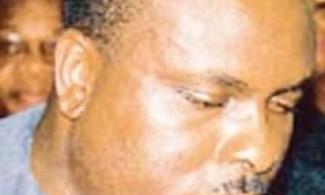
Ibori was dressed in a gloomy and fortuitous black jacket and a black shirt. Before the start of the proceedings, he greeted the few supporters who had struggled their way in. He then turned his attention to a sheaf of papers provided by his lawyer, reading with gold-coloured wire reading glasses as he listened to the brutal words of the prosecutor.
Ibori was dressed in a gloomy and fortuitous black jacket and a black shirt. Before the start of the proceedings, he greeted the few supporters who had struggled their way in. He then turned his attention to a sheaf of papers provided by his lawyer, reading with gold-coloured wire reading glasses as he listened to the brutal words of the prosecutor.
googletag.cmd.push(function() { googletag.display('content1'); });
At several points he laughed and smiled as the details were read out, and looked at some members of his defence team. When his counsel stood to speak, he crossed his arms, sat back and regarded the goings-on with a deep frown. It was a world of difference from the Federal High Court in Asaba, Nigeria, in November 2010 when Justice Marcel Awokulehin, ignoring the facts, dismissed all of the 170 charges of corruption and brigandage against Ibori.
In mitigation, Ibori's counsel, Nicholas Purnell, told the court that his client had pleaded guilty to very serious charges "right from the onset."
He said it took considerable courage to enter such a plea, and that of all those who were charged, Ibori was the only one to plead guilty from the very beginning.
googletag.cmd.push(function() { googletag.display('content2'); });
"There is a different story to tell." Mr. Purnell said, remarking that it was "ironic" that Mr Ibori had served Delta State as its first democratically elected governor.
googletag.cmd.push(function() { googletag.display('comments'); });